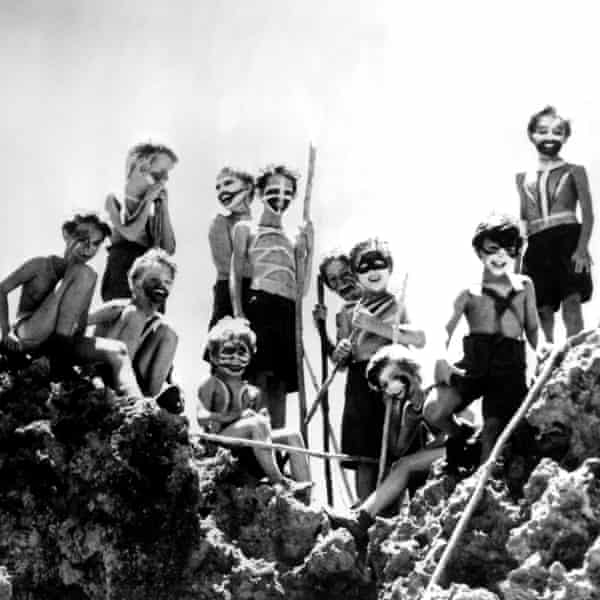 Rutger Bregman. Photograph: Maartje ter Horst What is his evidence ? Infants and toddlers, studies suggest, have an unconditioned bias towards fairness and cooperation. When some Tongan children were shipwrecked on a Pacific island for over a year, they cooperated liberally quite than re-enacting Lord of the Flies. In the first world war, german and british soldiers played football on Christmas Day. ( Rather bravely, the writer chooses this overfamiliar fable as his bathetic endpiece. ) such anecdotes are heartwarming, but possibly you want more evolutionary meat. Why, for exercise, did early humans survive while our cousins the Neanderthals did not ? Veneer theorists suspect grimly that we plainly killed them all. “ The more plausible theory, ” Bregman writes, “ is that we humans were better able to cope with the last methamphetamine historic period because we ’ d developed the ability to work together. ” That sounds nice, but obviously the author has forgotten how, merely a few pages early, he observed that Neanderthals “ built fires and cooked food. They made clothe, musical instruments, jewelry and cave paintings ”. In other words, they worked together besides. So his explanation makes small feel. such inconsistencies bedevil the book, particularly in its argument ( again following Rousseau ) that the capital tragedy of homo history was the invention of farming and cities around 10,000 years ago. That brought the drudgery of work and the arise of political leaders and war. Until then we were all happy peacenik hunter-gatherers. “ any meter we crossed paths with a stranger, ” Bregman writes confidently of this prehistoric eclogue, “ we could stop to chat and that person was a foreign no more. ” But here, unless he owns a time machine, he is simply making things up. And cherry-picking his evidence again : at least one modern hunter-gatherer society, the ! Kung people, were found to be very violent, peculiarly towards strangers. At length, Bregman ’ s willfully Edenic view of prehistoric company prompts the reader to wonder why, if he loves the hunter-gatherer life style so much, he doesn ’ metric ton go and live there .
Rutger Bregman. Photograph: Maartje ter Horst What is his evidence ? Infants and toddlers, studies suggest, have an unconditioned bias towards fairness and cooperation. When some Tongan children were shipwrecked on a Pacific island for over a year, they cooperated liberally quite than re-enacting Lord of the Flies. In the first world war, german and british soldiers played football on Christmas Day. ( Rather bravely, the writer chooses this overfamiliar fable as his bathetic endpiece. ) such anecdotes are heartwarming, but possibly you want more evolutionary meat. Why, for exercise, did early humans survive while our cousins the Neanderthals did not ? Veneer theorists suspect grimly that we plainly killed them all. “ The more plausible theory, ” Bregman writes, “ is that we humans were better able to cope with the last methamphetamine historic period because we ’ d developed the ability to work together. ” That sounds nice, but obviously the author has forgotten how, merely a few pages early, he observed that Neanderthals “ built fires and cooked food. They made clothe, musical instruments, jewelry and cave paintings ”. In other words, they worked together besides. So his explanation makes small feel. such inconsistencies bedevil the book, particularly in its argument ( again following Rousseau ) that the capital tragedy of homo history was the invention of farming and cities around 10,000 years ago. That brought the drudgery of work and the arise of political leaders and war. Until then we were all happy peacenik hunter-gatherers. “ any meter we crossed paths with a stranger, ” Bregman writes confidently of this prehistoric eclogue, “ we could stop to chat and that person was a foreign no more. ” But here, unless he owns a time machine, he is simply making things up. And cherry-picking his evidence again : at least one modern hunter-gatherer society, the ! Kung people, were found to be very violent, peculiarly towards strangers. At length, Bregman ’ s willfully Edenic view of prehistoric company prompts the reader to wonder why, if he loves the hunter-gatherer life style so much, he doesn ’ metric ton go and live there .
Signs of ferociousness … the 1963 film adaptation of Lord of the Flies. Photograph: Ronald Grant Since Bregman is a priori certain that all filthy stories about human nature must be “ myths ”, he tries to puncture respective. The chapter on Philip Zimbardo ’ s ill-famed Stanford prison experiment competently collects the holocene discoveries that the whole thing was a fraud, with the guards being coached in their cruelty to the prisoners. On the other hand, a bizarre chapter about Easter Island attempts to disprove, on the footing of some inconclusive fragments of evidence, the accept narrative of how deforestation led to civil war, cannibalism and population collapse. This never happened, concludes Bregman happily, even though the Easter Islanders themselves say it did : a graphic case of his endow for dismissing inconvenient tell. That access, however, won ’ deoxythymidine monophosphate wash with Stanley Milgram ’ s “ obedience ” experiments, in which subjects were instructed by experimenters to give ( fake ) electric shocks to people in another room, and continued to do then even when the “ victims ” seemed to be in awful trouble. Disarmingly, Bregman admits that he originally wanted to bring this narrative crashing down, but he can ’ t : the findings have been robustly repeated. rather he reframes the subjects ’ “ obedience ” as “ conformity ”, which might sound to you like a distinction without much of a difference. Our social instinct to conform, along with the long-familiar chumminess between soldiers, is what Bregman last offers as an explanation for the Holocaust, in topographic point of some narrative about cardinal human evil. Which even if plausible, notably fails to explain the actions of the nazi leaders themselves .
Any claim that complex human beings are essentially wicked or lovely, one single thing or another, is a fairytale
indeed far, thus less radical than primitively sold to the reader. But Bregman besides wants to reshape human society in the light of his not-very-new news program. This would involve, for exercise, widespread hyper-local participatory democracy, in which many more people go to endless town-hall meetings, though politics nerds who champion such arrangements might be overestimating the general populace ’ sulfur appetite for political engagement. ( The august bargain of mod liberal democracy is that citizens pay a professional political course so that, most of the time, they don ’ t have to think about politics. ) Bregman besides points at how nice norwegian prisons are, and visits a hippyish school where there are no hardened lessons or course of study. If we believed in human decency, he suggests, this is how things could be everywhere.
But plainly the attempt to replace a history about humans ’ substantive nefariousness with a contrasting story about humans ’ all-important comeliness has already run aground – as it was bound to, since any claim that complex human beings are basically one individual thing or another is a fairytale. “ I ’ ve argued that humans have evolved to be basically sociable creatures, ” Bregman writes – as though this is a weather thing to argue, though absolutely no one in the world disagrees with it – “ but sometimes our sociability is the problem. ” Well, sure. Gun-toting anti-lockdown protesters in the US are being sociable ; so are criminal gangs and reactionary activists. On the early bridge player, because things are more complicate than such books allow, sometimes being anti-social is the problem. Bregman unwittingly provides a perfective illustration of this when he goes to meet the conductor of the hippie educate. “ Drummen is one of those people who never lost his bent for dally, and who has always had an antipathy to rules and authority, ” Bregman writes admiringly. “ When he comes to pick me up from the railroad track post, he leaves his car parked flagrantly across the bicycle path. ” So this maverick pedagogical hero, who loves exemption from rules, is actually a dysfunctional egotist who thoughtlessly restricts the exemption of others. Any cyclist who had to navigate around this clown ’ south vehicle that day would have been barely that little bit less inclined to agree that people are basically charitable . world : A aspirant History is published by Bloomsbury ( RRP £20 ). To order a copy go to guardianbookshop.com. Delivery charges may apply .


